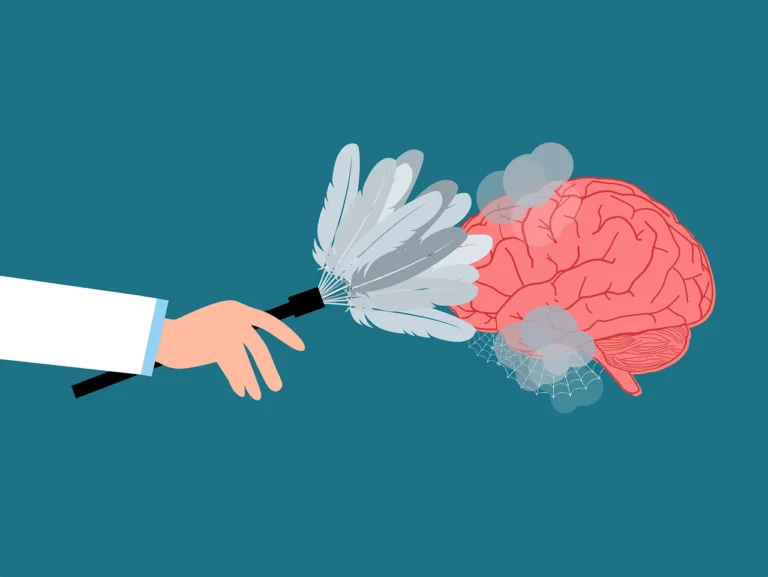Ever feel like no matter what you do, wealth slips through your fingers?
You budget, you hustle, maybe you even invest, but something invisible always seems to pull the brakes on your financial progress.
What if the problem isn’t your income, your intelligence, or your intentions… but your subconscious?
Welcome to the world of money scripts powerful, hidden beliefs about money that live deep in your subconscious and silently shape every financial decision you make. The term was first introduced by Dr. Brad Klontz, a financial psychologist who uncovered how these internal narratives often formed in childhood influence behaviors like saving, spending, investing, and even our sense of self-worth.
In this post, we’re going to dig up the roots of your financial behavior. You’ll discover the four most common money scripts that sabotage your wealth and more importantly, how to reprogram them to work for you, not against you.
Table of Contents
1. What Are Money Scripts?
Money scripts are subconscious beliefs about money like mental blueprints that influence the way you relate to your finances. You don’t consciously choose them. Instead, they’re usually passed down through generations, shaped by early life experiences, emotional events, and the financial dynamics you observed growing up.
Maybe you saw your parents fight over bills. Or perhaps you were praised for being “low maintenance” or taught that rich people are greedy. These moments may seem trivial now, but they leave an emotional imprint that becomes your default money operating system.
Here’s what makes unconscious money beliefs especially tricky:
- They’re unconscious: Most people aren’t even aware these beliefs are driving their choices.
- They’re emotionally charged: They’re often rooted in trauma, fear, or shame.
- They’re rigid: Even when they no longer serve you, these beliefs are hard to let go.
- They’re contextual: A script that “worked” in one situation might be harmful in another.
In short, unconscious money narratives are the behind-the-scenes stories we tell ourselves about wealth and unless we rewrite them, they can quietly sabotage our financial freedom.
2. How Money Scripts Are Formed

Money scripts don’t just appear out of nowhere, they’re planted early, often before we even understand what “money” really means. Think of them as emotional reflexes, shaped by what we see, hear, and feel about money in our formative years.
🔍 Picture this:
A child grows up in a home where every dinner table conversation ends in stress about debt. They watch as their parents argue over unpaid bills, absorb the tension, and internalize one powerful message: money causes pain. Fast forward 20 years that child is now an adult who avoids checking their bank account, procrastinates budgeting, and feels uncomfortable talking about money.
Now imagine a different child one who’s rewarded with gifts instead of affection. Whenever they do something “good,” a toy, a treat, or cash shows up. Over time, they begin to equate money with love, validation, and self-worth. As an adult, they chase wealth compulsively, convinced that more money will finally make them feel whole.
These aren’t isolated stories. They’re common. And they highlight the one thing most financial advice overlooks: your feelings about money matter more than your math.
Unconscious money beliefs are emotionally charged because they’re formed in emotionally intense environments. That’s why logical advice (“just save more!”) often fails. Until you address the emotional conditioning, the behaviors will repeat.
3. Types of Money Scripts
Money beliefs don’t just shape how you think, they dictate how you act. According to financial psychologist Dr. Brad Klontz, Americans have 4 core beliefs about money, known as “money scripts,” which often operate unconsciously. These scripts rooted in early life experiences can lead to financial self-sabotage if left unchecked.
1. Money Avoidance
- Core Belief: “Money is bad.”
- Common Behaviors: Ignoring financial issues, avoiding budgets, feeling guilty for wanting or having money.
- Emotional Driver: Fear, guilt, shame.
- Self-Sabotage Pattern: Tends to push money away, sabotage financial growth, or ignore problems until they explode.
This script stems from environments where money was associated with conflict, greed, or inequality. Ironically, it often leads to financial instability the very thing the person hoped to avoid.
2. Money Worship
- Core Belief: “More money will solve all my problems.”
- Common Behaviors: Overworking, impulsive spending, obsession with financial gain, neglecting relationships.
- Emotional Driver: Lack, emptiness, longing.
- Trap: No amount of money ever feels like enough.
People with this money script are often stuck in the “when I have X, then I’ll be happy” loop. But the goalpost keeps shifting, leaving them perpetually dissatisfied and often in financial disarray despite high income.
3. Money Status
- Core Belief: “My worth equals my net worth.”
- Common Behaviors: Spending to impress, chasing luxury, living above means to maintain an image.
- Emotional Driver: Insecurity, need for external validation.
- Hidden Cost: Debt, burnout, strained or superficial relationships.
This script thrives in comparison culture. It creates a life that looks successful but often feels hollow and comes with a hefty financial and emotional price tag.
4. Money Vigilance
- Core Belief: “You must be disciplined with every dollar.”
- Common Behaviors: Excessive saving, fear of spending, constant financial anxiety, secretive about money.
- Emotional Driver: Fear of loss, scarcity, anxiety.
- Paradox: The very pursuit of security leads to emotional imprisonment.
While this script can lead to financial stability, it often blocks joy, spontaneity, and the ability to enjoy the wealth you’ve built.
4. How These Scripts Shape Your Money Life
Your money script isn’t just a belief it’s a lens. Like all money scripts, it colors every financial decision you make, often without you realizing it.
Let’s break it down:
- Saving:
- Money Avoidance? You might resist saving because you feel unworthy of wealth.
- Money Vigilance? You might hoard savings to feel safe even when you’re more than secure.
- Money Avoidance? You might resist saving because you feel unworthy of wealth.
- Spending:
- Money Worship? You’ll likely spend to chase happiness or fill emotional gaps.
- Money Status? Purchases become performances driven by image, not need.
- Money Worship? You’ll likely spend to chase happiness or fill emotional gaps.
- Investing:
- Scripts rooted in fear or scarcity often make investing feel too risky, even when it’s logical.
- On the flip side, overconfidence driven by status or worship scripts can lead to reckless investing.
- Scripts rooted in fear or scarcity often make investing feel too risky, even when it’s logical.
- Earning:
- Your income potential is often capped not by your skills, but by your beliefs.
- If you believe wealth is evil or undeserved, you’ll find subtle ways to reject abundance.
- Your income potential is often capped not by your skills, but by your beliefs.
- Talking About Money:
- If money was taboo growing up, you might avoid discussions even with partners or professionals.
- This silence breeds secrecy, shame, and missed opportunities.
- If money was taboo growing up, you might avoid discussions even with partners or professionals.
💥 And here’s where it gets trickier: conflicting scripts.
Imagine someone who worships money but also fears it. They chase wealth obsessively, but feel guilty when they earn or spend it. That’s an emotional tug-of-war and it leads to burnout, poor decisions, and chronic dissatisfaction.
5. How to Identify and Reframe Your Money Script

The good news? You’re not stuck. You can rewrite the script. Here’s how:
1. Awareness
Start by uncovering the script.
Take the Klontz Money Script Inventory or journal about your earliest money memories. Ask:
- What did I learn about money growing up?
- How did my caregivers talk (or not talk) about money?
2. Emotional Excavation
Get honest about the feelings behind your beliefs.
- Does money make you anxious?
- Do you feel guilt when you spend?
- Is your financial behavior driven by fear, pride, or pressure?
3. Challenge the Narrative
Ask yourself: Is this belief still true for me today?
- “Is money really the root of all evil?”
- “Does more money actually equal more happiness?”
4. Create a New Script
Replace the outdated belief with a new, values-aligned one.
Examples:
- Old: “I don’t deserve wealth.”
- New: “I am worthy of financial abundance that aligns with my purpose.”
5. Seek Support
Money is emotional. You don’t have to go it alone.
- Work with a coach, therapist, or financial planner who understands the emotional side of wealth.
- Join communities that promote conscious money conversations.
6. Rewriting Your Financial Story
Rewriting your money script isn’t just a financial journey it’s a personal evolution.
🎯 Imagine this:
- The money avoider who finally creates a weekly budgeting ritual and learns to feel peace, not panic, when opening their banking app.
- The money worshipper who realizes joy isn’t for sale and starts investing in relationships, not just returns.
- The money vigilant who lets themselves take a spontaneous vacation without guilt.
These aren’t fairytales. They’re real transformations that happen when people shift from reacting to money, to relating to it with clarity and choice.
💡 The goal isn’t to chase more money, it’s to chase more awareness, more alignment, more agency.
That’s what conscious wealth really means.
Conclusion: You’re Not Broken Your Script Just Needs a Rewrite
If you’ve ever felt confused by your own financial behavior you’re not alone.
You’re not “bad with money.” You’re just living out a script you didn’t write.
But here’s the empowering truth:
You can choose a different story.
💬 Quick Recap:
- 🧠 Money Avoidance: “Money is bad.”
- 🔥 Money Worship: “More money = more happiness.”
- 💼 Money Status: “My worth is my wealth.”
- 🔒 Money Vigilance: “Don’t let your guard down.”
👉 Call to Action:
Start where you are. Reflect. Reframe. Reclaim your financial story.
Because true wealth isn’t just about numbers, it’s about the narrative behind them.
(FAQ)
1. What exactly are money scripts?
Money scripts are unconscious beliefs about money formed in childhood. They quietly shape your financial decisions from how you save and spend, to how you think and feel about wealth.
2. Can I have more than one money script?
Yes. Many people operate with a mix of scripts, sometimes even conflicting ones. For example, someone might believe money brings happiness (money worship) but also feel guilty for having it (money avoidance).
3. How do I know which money script I have?
Start by reflecting on your earliest money memories and emotional patterns. You can also take assessments like the Klontz Money Script Inventory (KMSI-R) to uncover your dominant beliefs.
4. Can money scripts really change?
Absolutely. With awareness, emotional insight, and intentional reframing, you can rewrite harmful scripts and adopt healthier, more empowering financial beliefs.
5. Do I need a financial therapist to work on my money scripts?
Not necessarily, but professional support can accelerate the process. Journaling, reading, coaching, or financial therapy can all help you unpack and transform your money mindset.








